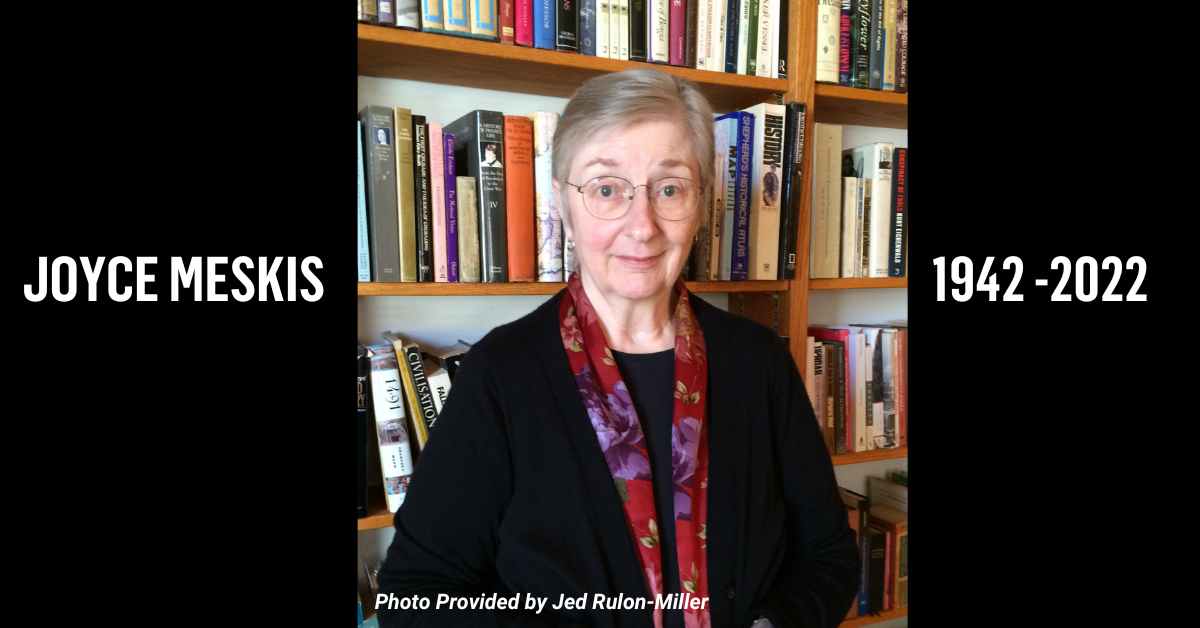NEW YORK – The National Coalition Against Censorship is saddened by the death of Joyce Meskis, a Colorado bookseller for over 40 years who won many important fights against censorship at the state and national level. Meskis died in Denver on December 22. She was 80.
Meskis was a divorced mother of two young daughters when she bought a small bookstore, Tattered Cover, in 1974. The store expanded steadily and became a Denver institution when it moved into a former department store, occupying 40,000 square feet on four floors. It was one of the largest independent bookstores in the country.
From the beginning, Meskis was deeply committed to defending free speech. She would later attribute her interest to a college course that introduced her to Areopagitica, Milton’s classic statement on the danger of censorship.
“We booksellers are gatekeepers of the expression of ideas,” Meskis told members of the American Booksellers Association in 1991 when she was the association’s president.
“….It is my view that as booksellers we have our own version of the Hippocratic oath to maintain the health and well being of the First Amendment….That, in fact, it is our most honorable charge to provide books of all kinds, even those with which we may personally disagree, find distasteful, even abhor.”
A statement of the store’s philosophy was even more emphatic. It concluded, “….[W]e maintain that it is our responsibility to actively resist censorship that limits your right as our customers to make those choices for yourselves.”
The record of her activism is both long and distinguished:
• In 1981, when her store was still small, she was a plaintiff in two cases that eventually reached the Colorado Supreme Court. One struck down a state law banning the display of material “harmful” to minors. The other established that the Colorado Constitution provides broader protection for speech with sexual content than the First Amendment.
• In response to growing censorship pressure in the 1980s, she urged ABA to provide additional support for anti-censorship groups and later led an ABA taskforce that created the American Booksellers Foundation for Free Expression.
• In 1989, Tattered Cover joined other Colorado bookstores in publishing a newspaper ad pledging to continue to sell Salman Rushdie’s Satanic Verses, which had become the target of terrorist violence, including the bombing of a California bookstore. Tattered Cover donated all profits from the sale of the book to anti-censorship groups.
• In 1991, as ABA president, Meskis testified before the Senate Judiciary Committee in opposition to the Pornography Victims Compensation Act, which authorized the victims of sexual attacks to sue booksellers and other producers and distributors of books and other media that “caused” the attacks. Meskis also helped persuade a Republican senator from Colorado to break with his party and oppose the bill, contributing to its defeat.
• In 1994, Meskis led the successful fight against a ballot initiative that would have amended the Colorado Constitution, giving the state legislature the power to expand the range of sexual speech that could be banned. It was rejected by 63 percent of the voters.
By the mid-1990s, Meskis was widely recognized for her leadership. In 1995, she received the PEN/Newman’s Own First Amendment Award, which included a check for $25,000. She used the money to establish the Colorado Freedom of Expression Foundation.
But her greatest challenge—and triumph—lay ahead. In 2000, five police officers from a neighboring town arrived at Tattered Cover with a search warrant and demanded immediate access to the book purchase records of a customer suspected of making methamphetamine. (They wanted to link the suspect to a book about making meth that was found in his home and hoped they could show that it was sent to him by Tattered Cover in an envelope that was also found at the scene.)
Meskis stalled the police. She feared that turning over the records would have a chilling effect on customers, making them afraid to buy books they wanted. Kenneth Starr, an independent counsel who was investigating President Bill Clinton, had recently attempted to obtain a list of the books sold to Monica Lewinsky by two Washington, D.C., bookstores.
Meskis called her lawyer, who persuaded the police to withdraw, allowing a judge to decide what information had to be turned over. It was the beginning of a case that plunged the store and its owner into controversy. Over the next two years, it cost Meskis both time and money. Critics accused her of taking the side of a drug dealer, potentially alienating her customers.
Yet Meskis remained resolute. “This is about the right to privacy and the freedom to read what you like without the police looking over your shoulder,” she told the Denver Post. With few exceptions, her customers supported the store.
When a judge gave her a partial victory, Meskis had to decide whether to take the case to the Colorado Supreme Court. Her lawyers warned that there was little legal precedent to support her case. She told them to appeal.
The supreme court justices who heard the case were unanimous in their decision. They ruled not only that the search warrant was invalid, but that any effort to obtain bookstore records without a hearing was unconstitutional.
Throughout her career, Joyce Meskis rejected efforts to portray her as a free speech hero. “No, I’m a bookseller who still, 50 years after my first bookselling job, gets a thrill out of seeing a person’s eyes light up with the joyful and thoughtful pleasure of reading a book,” she said.
“It seems to me the legacy of any bookstore is in the love of reading and the critical thinking fostered in the customers we serve. One hopes it carries forward, playing some small part in making a better world.”


